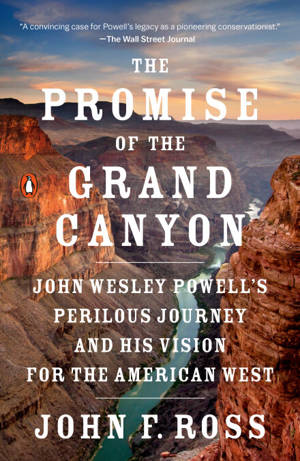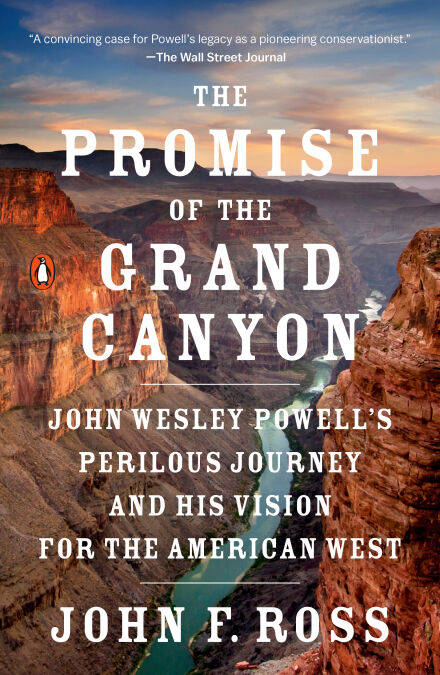
- Afhalen na 1 uur in een winkel met voorraad
- Gratis thuislevering in België vanaf € 30
- Ruim aanbod met 7 miljoen producten
- Afhalen na 1 uur in een winkel met voorraad
- Gratis thuislevering in België vanaf € 30
- Ruim aanbod met 7 miljoen producten
Zoeken
The Promise of the Grand Canyon E-BOOK
John Wesley Powell's Perilous Journey and His Vision for the American West
John F. Ross
E-book | Engels
€ 5,75
+ 5 punten
Uitvoering
Omschrijving
“A convincing case for Powell’s legacy as a pioneering conservationist.”--The Wall Street Journal
"A bold study of an eco-visionary at a watershed moment in US history."--Nature
A timely, thrilling account of the explorer who dared to lead the first successful expedition down the Colorado through the Grand Canyon—and waged a bitterly-contested campaign for sustainability in the West.
John Wesley Powell’s first descent of the Colorado River through the Grand Canyon in 1869 counts among the most dramatic chapters in American exploration history. When the Canyon spit out the surviving members of the expedition—starving, battered, and nearly naked—they had accomplished what others thought impossible and finished the exploration of continental America that Lewis and Clark had begun almost 70 years before.
With The Promise of the Grand Canyon, John F. Ross tells how that perilous expedition launched the one-armed Civil War hero on the path to becoming the nation’s foremost proponent of environmental sustainability and a powerful, if controversial, visionary for the development of the American West. So much of what he preached—most broadly about land and water stewardship—remains prophetically to the point today.
"A bold study of an eco-visionary at a watershed moment in US history."--Nature
A timely, thrilling account of the explorer who dared to lead the first successful expedition down the Colorado through the Grand Canyon—and waged a bitterly-contested campaign for sustainability in the West.
John Wesley Powell’s first descent of the Colorado River through the Grand Canyon in 1869 counts among the most dramatic chapters in American exploration history. When the Canyon spit out the surviving members of the expedition—starving, battered, and nearly naked—they had accomplished what others thought impossible and finished the exploration of continental America that Lewis and Clark had begun almost 70 years before.
With The Promise of the Grand Canyon, John F. Ross tells how that perilous expedition launched the one-armed Civil War hero on the path to becoming the nation’s foremost proponent of environmental sustainability and a powerful, if controversial, visionary for the development of the American West. So much of what he preached—most broadly about land and water stewardship—remains prophetically to the point today.
Specificaties
Betrokkenen
- Auteur(s):
- Uitgeverij:
Inhoud
- Aantal bladzijden:
- 416
- Taal:
- Engels
Eigenschappen
- Productcode (EAN):
- 9780698409989
- Verschijningsdatum:
- 2/07/2018
- Uitvoering:
- E-book
- Beveiligd met:
- Adobe DRM
- Formaat:
- ePub

Alleen bij Standaard Boekhandel
+ 5 punten op je klantenkaart van Standaard Boekhandel
Beoordelingen
We publiceren alleen reviews die voldoen aan de voorwaarden voor reviews. Bekijk onze voorwaarden voor reviews.








